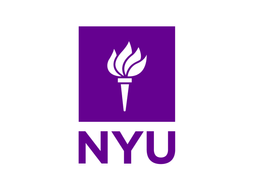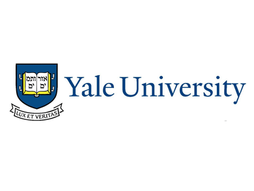11 Research Opportunities in Aerospace Engineering for High School Students
Aerospace engineering involves the development of aircraft and spacecraft, which may at first seem too advanced for a high school student to study! However, research opportunities in aerospace engineering have begun accepting high schoolers, some of which have been covered in this blog.
Most of these programs involve working with faculty in order to design an aircraft, which will require knowledge of basic aviation and related knowledge. That being said, some of these aerospace engineering research programs also accommodate beginner high school students who are starting out in the field, so if you are passionate about aerospace engineering research and learning more, explore and apply to the aerospace engineering research programs listed below!
11 Research Opportunities in Aerospace Engineering for High School Students
Upper-level high schoolers may have a chance to study aerospace engineering at the Air Force Research Laboratory over the summer. If selected, you will have the opportunity to receive guidance from full-time AFRL scientists and engineers while touring AFRL laboratories and working on cutting-edge research and technology. You can expect to work on areas such as aerospace / mechanical design for morphing aircraft technology, complex electromagnetic structures, and metalen design and modeling (to name a few). These opportunities are also open to undergraduate and graduate-level students so be sure to filter for specific opportunities open to high school students. Competitive rates for stipends are available as well.
Costs: None
Eligibility:
Have a GPA of at least 3.0 on a 4.0 scale and possess good academic standing.
Must be a US Citizen, be at least 16 years of age, and have a valid driver’s license.
Must be enrolled or accepted at an educational institution taking at least half-time academic course load leading to a degree or certificate for semester immediately preceding internship session.
Must be available to work full-time (40 hours per week) for summer internship positions.
Must be willing to temporarily relocate to a physical work location and arrange transportation to and from the worksite each day.
Must be able to pass a background check, such as the Secret Security Clearance.
Selectivity: High
Horizon offers trimester-long research programs for high school students across subject areas such as data science, machine learning, political theory, and more! Horizon is one of the few research programs for high school students that offers you the choice to engage in either quantitative or qualitative research. Once you select a particular subject track, Horizon pairs you with a professor/PhD scholar who acts as a mentor throughout your research journey. As a participant, you will be expected to develop a 20-page research paper that you can send to prestigious journals for publication as a high school student. The program also provides a letter of recommendation for each student and detailed project feedback that you can use to work on future projects.
Location: Virtual
Application Date: Multiple deadlines throughout the year for the Spring, Summer, and Fall cohorts.
Program Dates: The spring and fall cohorts run 15 weeks, while the summer cohort runs 10 weeks (June-September).
Eligibility: High school students with good academic standing (>3.67/4.0 GPA) can apply. Most accepted students are 10th/11th graders! Only a couple of tracks require formal prerequisites, more details of which can be found here.
Named after the renowned astronaut and physicist, the Sally Ride Science Academy and an initiative by UC San Diego, the Sally Ride Science Academy provides opportunities for students in grades 3-12 to experience STEM roles, such as space explorer and computer engineer. Workshops can be in-person or online and take place over four weeks. Popular workshops include iOS Programming, Messy Discoveries, and Tiny Houses, but for aerospace specifically, there is Space Out.
Named after the renowned astronaut and physicist, the Sally Ride Science Academy is an initiative by UC San Diego. The Sally Ride Science Academy provides opportunities for students in grades 3-12 to explore various STEM roles, including space explorer and computer engineer. This program offers both in-person and online workshops over four weeks. Popular workshops encompass iOS Programming, Messy Discoveries, and Tiny Houses, with a specific focus on aerospace engineering through the Space Out workshop. Faculty at the University of California San Diego will lead the program, ensuring a fulfilling academic experience for all participants, particularly for high school students interested in pursuing careers in STEM fields.
Cost: $450
Eligibility:
Entering grades 3-12
Interested in Science, Technology, Engineering, and Mathematics.
Selectivity: Open
USC Viterbi's SHINE students have the chance to join a research team for seven weeks. In a team, you can discover how engineering addresses our real-world problems in various fields, including aerospace. Students will work in experimental lab work or computational research while pursuing lab projects of cutting-edge technology. In addition, the community of SHINE is incredibly strong, as social and intellectual networking, college prep tips, and extensive experience in science communication will be provided.
Costs: $5,750, scholarships available
Eligibility:
The program is designed for freshman, sophomores and juniors.
GPA of 3.4 or higher on a 4.0 scale is recommended.
Throughout the duration of the program, student must be prepared to contribute at least 20 hours per week (except the July 4th and Juneteenth holidays).
Selectivity: High
Rising 10th through 12th graders can get hands-on experience in engineering at the University of Arizona. The program includes working with professors, undergraduate students, and graduate students by designing projects; learning about engineering as a career; exploring the UA campus and facilities; and networking with peers. Program details for summer 2023 are still being decided, so if you’re interested, check the website for updates.
This year, SEA is introducing four-day day camps along with two returning residential programs. Participants will receive lunch each day. Housing will only be available for those in the residential programs, but families are encouraged to plan a trip to Tucson and explore local attractions while their high school student(s) attend SEA. The cost for the residential camps is $750, whereas the day camps are priced at $350. All attendees are invited to apply for needs-based scholarships, which can be accessed through the registration portal. The deadline for submitting scholarship applications is April 15, 2025.
Costs: Residential camps are priced at $750, whereas the day camps are priced at $350
Eligibility:
Open to all rising 10th–12th graders interested in learning about engineering.
Selectivity: Moderate
NASA Office of STEM Engagement (OSTEM) offers paid internships at locations all around America. High school students located near NASA facilities can explore available positions and gain hands-on experience in areas related to aerospace engineering. These internships offer a unique opportunity for students to delve into the field of aerospace engineering while developing valuable skills for their future careers.
Costs: None
Eligibility: Must be a U.S. citizen with a minimum 3.0 GPA.
Selectivity: Moderate
The Engineering Summer Camps at the University of Illinois have multiple sessions for their Aerospace Engineering program for high schoolers of all grade levels, although juniors and seniors are preferred for on-campus activities. Though many campers have some sort of experience with the aerospace field, you don’t need experience to apply. Students will learn about aerospace engineering topics, including flight mechanics, aerodynamics, rocket propulsion, and more.
Costs: $1,000 for on-campus activities, $50 for virtual camp activities
Eligibility:
Open to all students from grades 9-12.
Though most of the students who attend are from the Midwest, students all over the U.S. and the world are welcome to apply.
Selectivity: Moderate
This is a nationally competitive STEM program for high school students where students work beside NASA subject matter experts. The program is focused on Earth and space research and relies on interns to assist with analyzing and visualizing data - key aspects of moving a project faster and foundational knowledge for aerospace engineering. All project teams will present their research during the Virtual SEES Science Symposium. There is a virtual, learning component to the program and then an onsite experience on campus at University of Texas, Austin.
Cost: None
Eligibility:
Applicants must be sophomores or Juniors in High school.
Must be 16 by July 1 and have a strong interest in Science, Technology, Engineering, and Math.
Ability to complete online requirements prior to the on-site intern program. Must be a U.S. citizen.
Selectivity: High
The MIT Beaver Works Summer Institute (BWSI) will offer both in-person and virtual project-based courses for academically motivated high school students. Course topics span various engineering concepts, such as Embedded Security and Hardware Hacking and Serious Game Development with AI. For aerospace engineering, the program features courses like Autonomous Air Vehicle Racing and Remote Sensing for Disaster Response. The summer program runs weekdays from 10 AM to 6 PM EDT, with a mix of lectures, labs, and office hours.
Students must first complete prerequisite online courses, which open on February 1. Progress and grades are monitored to determine eligibility for the summer program, with the application deadline on March 31 and all prerequisites completed by June 25 to secure a spot. BWSI also offers introductory spring programs for 9th and 10th-grade students starting in March. Full details can be found on the BWSI steps page.
Costs: None
Eligibility:
Must be a student attending high school in the United States.
The program encourages interested students to be nominated or self-register to access the online course, but as a limited number of students are selected, accepted students are usually rising seniors.
Selectivity: High
Every summer, the College of Engineering at NC State University accepts passionate 11th and 12th graders to attend programs on engineering and reside in its Raleigh campus. In particular, the Look Up! Way Up! program provides classes on airfoil and aircraft performance to structures and propulsion. Students will be able to participate in wind tunnel and building labs while applying basic principles of mechanical and aerospace engineering. Ultimately, with the aid of the faculty and undergraduate students, students will build and fly a model airplane. Field trips to local airports and access to flight simulator programs are available as well. Applications will open on January 13th and close on March 28th, with notifications sent out on April 28th.
Costs: $1,225, limited financial aid available
Eligibility:
Must be in 11th or 12th grade in fall 2023. Younger students are not able to apply.
Homeschooled students are also encouraged to apply, as are students from out of state and out of the country.
Selectivity: Very High
Among the summer camps offered by Embry-Riddle, there are many options for those interested in aerospace engineering and aviation. High schoolers that are 18 years old or younger will take a look into the world of aerospace by exploring topics of space flight, aviation maintenance, the science of flight, and more. The programs that are available are Aerospace Camp, Aerospace Career Exploration Camp, Aerospace Engineering, Air Traffic Control, Aircraft Accident Investigation, and Aviation Voyage Camp.
Costs: Varies by program but ranges from $950 to $2,475
Eligibility:
Age range varies by program
Selectivity: Moderate
If you are passionate about STEM subjects, check out some of our other opportunities in computer science, physics, and biology.
One other option – Lumiere Research Scholar Program
If you are passionate about research, you could also consider applying to the Lumiere Research Scholar Program, a selective online high school program for students that was founded by researchers at Harvard and Oxford. Last year, we had over 2100 students apply for 500 spots in the program! You can find the application form here.
Lydia is currently a sophomore at Harvard University, studying Molecular and Cellular Biology. During high school, she pursued engineering activities like attending the Governor's School of Engineering and Technology. In her spare time, she likes to create digital art while listening to music.










